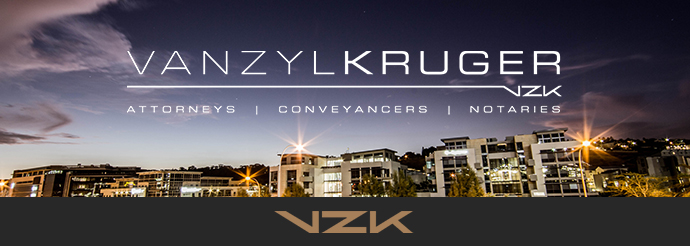Freedom of Religion
“Governments have a duty to instruct the public on how to stay safe during this crisis and can absolutely do so without dictating to people how they should worship God,” - Roger Severino, US attorney at the Office for Civil Rights.
It is a concern that in South Africa the Constitutional right to Freedom of Religion is not absolute and may therefore be limited by other rights or by a law in pursuit of a legitimate government purpose. All the more reason to exercise caution when giving up essential pre-lockdown freedoms the church enjoyed, as it might become a permanent new normal.
Op 2 Junie 2020 het die Gautengse Afdeling van die Hooggeregshof die sluitingsregulasies wat deur die Minister van Samewerking en Tradisionele Sake uitgevaardig is ingevolge artikel 27 (2) van die Wet op Rampbestuur, ongeldig en ongrondwetlik verklaar. Hierdie ongeldigheidsverklaring is opgeskort totdat die Minister (na oorlegpleging en konsultasies binne 14 dae met die betrokke kabinetsministers)die Regulasies kon hersien, wysig het en dit weer kon publiseer. Vlak 3 Regulasies het egter steeds geldig gebly gedurende die opskortingsperiode. Die Minister het die beslissing geappelleer en die saak sou op 24 Junie 2020 op verhoor gaan. Uitspraak is voorbehou.
Towards the end of May 2020 President Cyril Ramaphosa announced the re-opening of churches, synagogues, mosques, temples and other recognized places of worship from the 1st of June 2020 under strict restrictions to prevent the further spread of the coronavirus. Places of worship can now resume services, but these will be limited to 50 people or less and that social distancing must be observed. The announcement was met with mixed reactions. This has a huge impact on churches with hundreds or thousands of members as only 50 members are allowed to attend each service. Many have in addition resorted to online church services, but what about those church members who don’t have access to the internet? Those who can’t afford to watch online services? Those who are turned away because only 50 people are allowed to attend a service?
Voordat die heropening aangekondig is, het die president 'n virtuele vergadering gehou met die Suid-Afrikaanse Raad van Kerke (“SARK”), 'n forum wat 30 kerke en organisasies verteenwoordig. Die SARK het riglyne aan die president oorhandig oor hoe kerke onder vlak 3 kon funksioneer en baie toegewings gemaak, ondermeer die ontmoediging van ouer gemeentelede om eredienste by te woon en deur sang nie toe te laat tydens dienste nie.
Of die president met enige ander kerke of godsdienstige organisasies anders as die SARK geraadpleeg het (gesien die feit dat daar baie ander kerke is wat miljoene Christene in Suid-Afrika verteenwoordig), is nie bekend nie. Wat vir een kerk belangrik is, is miskien nie belangrik vir 'n ander nie; leerstellinge verskil, asook die tipe godsdienstige aktiwiteite per kerk en hoe dienste uitgevoer word.
Question: Are the guidelines/directives overly prescriptive and is government allowed to control how we worship God? Let’s look at how some important Christian practices are impacted by government’s directives:
- Laying on of hands: Clause 6 (2) - “any religious ritual that requires personal contact” is prohibited. Some churches practice laying hands on the sick (touching any part of their body) while praying for them. Others believe in the washing of feet, which is also prohibited. Some considered wearing a glove before laying hands on someone (an act of faith) and others consider this to be ridiculous.
- Baptising by submerging a person in water – since physical touch is prohibited a Pastor or religious leader may not baptise anyone.
- Communion: Clause 8(6) – “no substance or liquid may be shared between persons”. Not all churches have the financial means to order pre-packed disposable communion packs.
- Worship: Clause 5(1)(d) - worship could take the form either of a “solo performance” or a “pre-recorded performance”. Corporate worship or singing is prohibited.
Daar is diegene wat kerkbywoning nie as noodsaaklik beskou nie, ander wat die behoud van die lewe tydens hierdie pandemie as belangriker beskou as ander regte, nog ander wat verkies om nie die eredienste persoonlik by te woon nie en diegene wat op hierdie stadium verkies om terug te keer na vlak 5 in die lig van die toename in COVID-19 gevalle. Daar is ook diegene wat 'n beroep doen op die totale beeïndiging van grendeltyd en inperkings.
Of jy nou verkies om aanlyn eredienste in die gerief van jou eie huis te kyk of om saam met ander Christene by die kerk saam te kuier in gemeenskaplike aanbidding; selfs al beoefen jy 'n ander godsdiens, is dit belangrik om te besef dat godsdiensvryheid is iets wat elkeen behoort te beskerm.
In closing: “When the exercise of various freedoms results in a clash of rights, every effort must be made to ensure that all rights are protected as human rights are indivisible, inter-related and interdependent, and without a hierarchy amongst human rights. Therefore one right should not be traded off against another, but balanced on a case-by-case basis grounded on a careful normative and factual analysis.
“…objective and reasonable criteria may be used to treat different individuals or groups differently to achieve fair outcomes for all...” - Ahmed Shaheed, U.N. Special Rapporteur on Freedom of Religion or Belief.
Groete en Beste Wense / Greetings and Best wishes
Hennie, Eberhard & Cheryl-Anne
Direkteure | Directors


